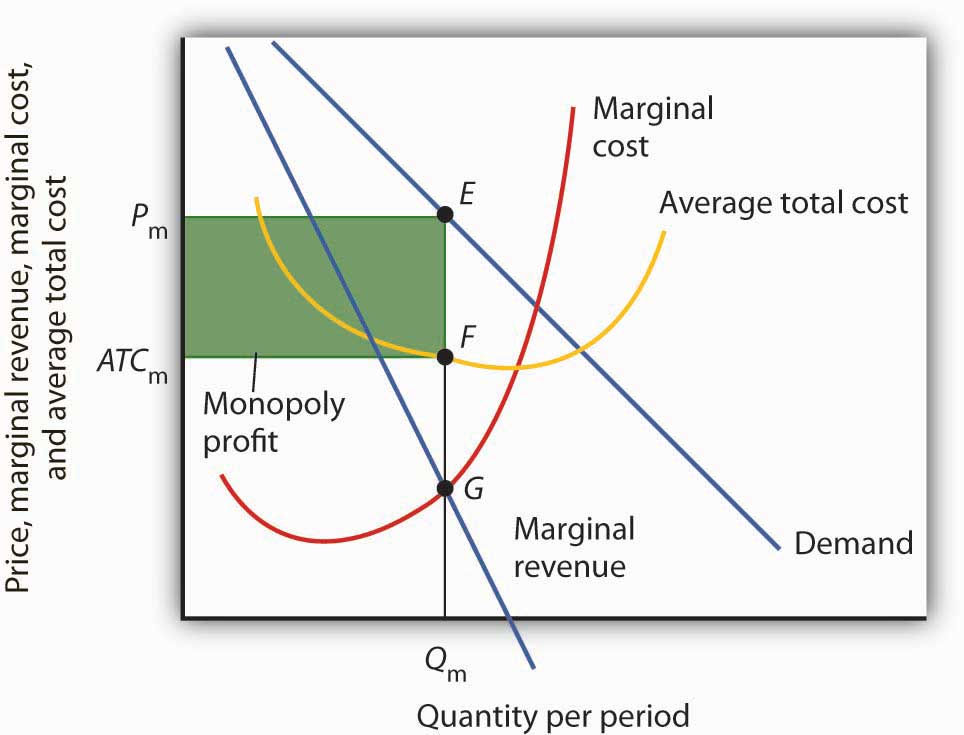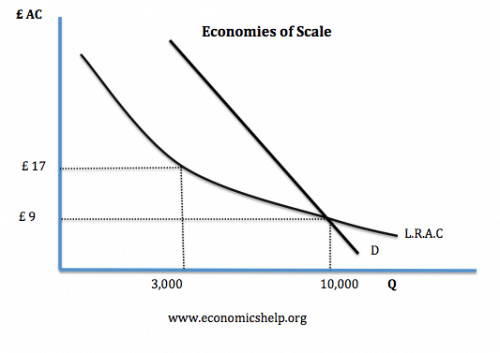


As opposed to a pure monopoly, where only one seller owns the entire market, the existence of some degree of monopoly power is more common in industries. It can be interpreted as the opposite of perfect competition. A concentrated market is one with very few firms. These barriers can be economic, legal, or related to access to resources. A pure monopoly is an example of a concentrated market. High barriers to entry: There are high barriers to entry in a monopoly, making it difficult or impossible for other firms to enter the market. A natural monopoly is a type of monopoly that exists typically due to the high start-up costs or powerful economies of scaleof conducting a business in a specific industry which can result in significant barriers to entry for potential competitors.Firms are " price makers": Monopolies have the power to set prices for their products or services, rather than being subject to market forces like firms in competitive markets.One, large firm (the firm is the industry): In a monopoly, there is only one large firm operating in the industry, effectively making it the industry itself.Natural monopolies are actually beneficial to society because they charge low prices and promote productive efficiency. Since other firms cannot compete with these low costs, it drives them out of the business and allows the dominant firm to monopolize the industry. A natural monopoly is a kind of a monopoly that can exist normally because of the great start-up costs or incredible economies of scale of directing a business.

A natural monopoly occurs when an individual firm comes to dominate an industry by producing goods and services at the lowest possible production cost.


 0 kommentar(er)
0 kommentar(er)
